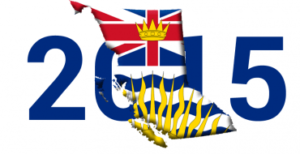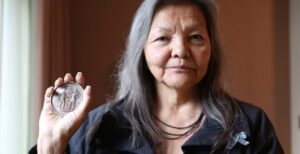Startup Weekend brought together aspiring entrepreneurs and challenged them to build something entirely new: zero to one, seeds to Apples, all in the time it takes to re-watch Game of Thrones and take a shower. Over the course of the three-day event hosted by Launch Academy, participants were tasked with pitching ideas, forming teams around the most promising, conducting market research, developing a prototype and the skeleton of a business plan, and, finally, pitching their startup before a panel of industry judges.
Sound exhausting? Luckily there was an inexhaustible supply of Red Bull, sugar, and raw energy on hand to keep brains firing and teams scrumming right through till the final presentation. One team managed to pivot three times over the course of the event, pivoting on Saturday night from a scheme for selling high-end diapers to a sort of Wikipedia for kids called Funny Bread. This final offering made use of Siri’s voice recognition functionality to explain scientific terms: DNA, for instance, “is the code that makes you, you.”
While many teams coalesced around a tech concept, this was not a Hackathon and there were many non-techies engaged in the marketing and business development aspects. But it was still a contest, which meant there had to be a winner. The final pitches would be judged by three criteria:
1) Validation— the startup had to address real pain-points existing out there in the world
2) Execution and Design— can you actually demo the prototype?
3) Business Model— fancy design is all well and good, but how is this going to generate any cash flow?
Sunday night and it was time for the final pitches. In neighbouring Gastown pubs, the city counted out the last hours of the weekend by the sip. Inside Launch Academy, the pitch-leaders were bouncing knees and trying to memorize the last wisdom from their cue cards. Five minutes for a pitch, only three for Q&A. The air hummed with anticipation. We might just be standing in the presence of the next great thing. Well, why not? In this economy, anything might fly including Amazon drones.
The first team opened with an idea for a flash-mob app that promised to help bars pull in new customers. Having your phone ping when you’re approaching a hot deal could a good feature. But, then again, if pedestrians strolling through Gastown spent a little less time looking at their phones they might save themselves from tripping over the cobblestones.
The next team had an answer for sore bodies. The pain-point they’d identified was that hardly anyone is making full use of their work benefits because booking appointments is never a priority and reading the fine print of your work benefits is an exercise of soul-sucking dullness. They had Validation. They also had a catchy name. Get Yana.
The pitch-leader, Khalid Abdul Razak, backed the name with a story: “My name is Khal, I work a corporate job. I start at 8, work until 6 and sometimes I work late. But it’s all good because I get great benefits. Awesome, right? Not so much. I’ve got to track my benefits on an excel sheet and then I have to submit these expenses. And if I get anything wrong, I have to do it all over again or maybe get audited for the entire year. I’m lucky enough to have a wife who does all this for me. Her name is Yana. But not everyone has a Yana. Our mission is to build a Yana for everybody.”
The presentations passed in a blur of slides, info-graphics, and pitches spoken at faster and faster speeds until the inevitable buzzer. There were some excellent ideas on display: a pick-your-own-vegetables grocery store for members, the mock-up of a financial literacy app for children, a plan to help home-builder’s use Virtual Reality and Augmented Reality to showcase their design. All of the pitches were impressive for the scope of vision. They were also all, inevitably, less than watertight. A panel of industry judges that included Chris Miller, CEO of Invoke, the company behind the Vancouver darling Hootsuite, were quick to find the gaps and point out the significant obstacles. Every startup needs to find its special problem, the problem it is going to solve better than any other company. The problem with problems is that most of the important ones are either claimed by established competition or too massive to be tackled by a startup. Most, but not all, so the hunt continues for that elusive, perfect problem (along with the user-friendly solution, of course).
It was impossible not to admire the vision of the future these aspiring entrepreneurs were chasing down— that promised tech-utopia, where an A.I. assistant schedules you a massage while you’re headed downtown to pick your own organic produce out of a hydroponic farm. If you have kids, they might learn the foundations of financial literacy while playing MyLoot, one of the best-presented pitches of the evening. This is the future we were promised; where new tech creates opportunities for better, more relaxed living, a vision far better than our troubled reality of possible Twitter-induced Armageddon, email hacks, and smart ads that stalk you around the Internet.
Get Yana took the Crowd Favourite Award, perhaps because they were best able to grow excitement about their idea. Razak used the word massage so frequently that the audience, seated in stiff plastic chairs, couldn’t help but wish that a friendly Yana had already booked them an appointment. Third place went to High Tech Homes, for their robust demo and industry knowledge. Second, went to MyLoot and 1st would go to the crowd favourite, Get Yana. The winning teams were offered free coaching sessions at Launch Academy and an online toolshed of resources and template.
Ideas for startups are like ghost stories. Everyone has one to share, but good luck convincing anyone. But, then again, a good idea can raise venture capital funds, just as surely as a good ghost story can raise the hairs on the back of your neck. As CEO of Invoke Chris Miller pointed out, “Raising money is often a lot easier than actually making it.” How is your good idea going to earn revenue? What about getting money in the pocket. What about finding a niche market. What about identifying your customers’ pain-points. These are essential lessons for any aspiring entrepreneurs and difficult challenges in their own right. All the same, it was inspiring to see these weekend startups aim for something more than just earning a buck. How about more accountable charities, how about better homes, how about better access to fresh produce, how about a massage this Thursday? It remains to be seen how many of these startups will ghost out and how many will commit themselves to the long, difficult road to market. But we can hope.









